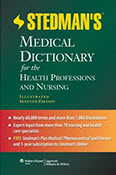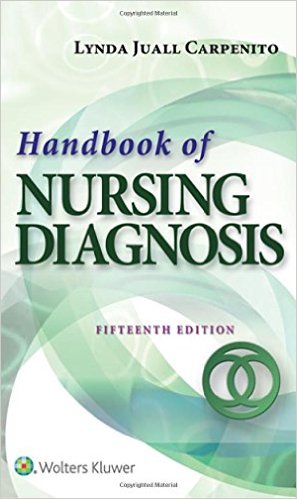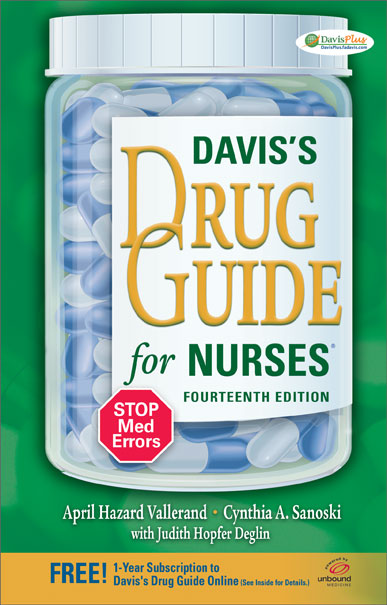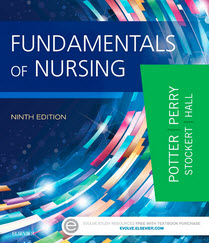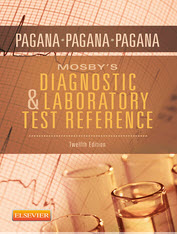| Course Number: | NR224 |
|---|---|
| Course Title: | Fundamentals: Skills |
| Credit Hours: | 3 credits |
| Theory Hours: | 2 |
| Laboratory Hours: | 1 |
| Clinical Hours: | 0 |
| Place in Curriculum | Year 2; Semester 1 |
| Prerequisite: | BIOS242, BIOS251, BIOS252, BIOS255, BIOS256, CHEM120, MATH114, NR101 or NR103, NR222 |
| Corequisite: | None |
Syllabus
Overview
Course Description
Students are introduced to the fundamental skills of professional nursing. An introductory unit of physics provides the basis for understanding concepts such as body mechanics, positioning, and mobility. The laboratory component provides practice of selected fundamental nursing skills, as well as psychomotor skills necessary for care of individuals requiring assistance with mobility, hygiene, and comfort. Included are basic principles of drug administration, teaching-learning and vital-sign assessment. Students have the opportunity to develop the beginning skills of a professional nurse through experiential learning.
Textbooks and Resources
Required Textbooks
The following books are required for this course:

American Psychological Association. (2010). Publication manual of the American Psychological Association (6th ed.). Washington, DC: Author.
Optional Textbooks
The following books are required for this course:
Stedman, J. K. (2011). Stedman's medical dictionary for the health professions and nursing. (7th ed.). Baltimore, MD: Lippincott Williams & Wilkins.
Carpenito-Moyet, L. (2016). Handbook of nursing diagnosis (15th ed.). Philadelphia, PA: Lippincott, Williams & Wilkins.
Vallerand, A. H., & Sanoski, C. A. (2014). Davis's drug guide for nurses. (14th ed.). Philadelphia, PA: F.A. Davis.
Potter, P. A., Perry, A. G., Stockert, P. & Hall, A. (2017). Study guide for fundamentals of nursing (9th ed.). St. Louis, MO: Mosby Elsevier.
Pagana, K. D., & Pagana, T. J. (2015). Mosby's diagnostic and laboratory test reference. (12th ed.). St. Louis, MO: Mosby Elsevier.
Potter, P. A., Perry, A. G., Stockert, P. & Hall, A. (2017). Fundamentals of nursing (9th ed.). St. Louis, MO: Elsevier.
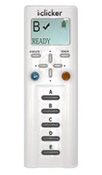
iClicker
Physical Books and Supplies
To obtain all your books and supplies, visit the online Chamberlain bookstore at https://bookstore.chamberlain.edu/.
eBook Details
First Time Using VitalSource?
Step 1: View the VitalSource Video
Step 2: Register with VitalSource Bookshelf Online
- Click the cover or title of your eBook. A new window will open.
- Enter email address and password. Bookshelf Online will open.
Step 3: Access the Desktop and Mobile Versions
You must complete Step 2 prior to using the desktop or mobile versions.
Already Registered? 3 Ways to Access Your eBooks

Online
Access your eBook by clicking on the book cover or title in the syllabus page. Bookshelf Online will open.

Desktop
Download your eBooks and use them whether you're connected to the Internet or not.

Mobile
Download the app and get your eBooks on your iPhone, iPad, or Android device.
Program Outcomes
The outcomes for the Bachelor of Science in Nursing (BSN) degree program are as follows:
1
Provides individualized comprehensive care based on theories and principles of nursing and related disciplines to individuals, families, aggregates and communities, from entry to the healthcare system through long-term planning.
2
Demonstrates leadership and collaboration with consumers and other healthcare providers in providing care and/or delegating responsibilities for health promotion, illness prevention, health restoration, health maintenance and rehabilitative activities.
3
Communicates effectively with patient populations and other healthcare providers in managing the healthcare of individuals, families, aggregates and communities.
4
Integrates clinical judgment in professional decision making and implementation of the nursing process.
5
Demonstrates responsibility for continued personal and professional development through enrollment in graduate education, continuing education degree programs, professional reading and participation in professional organizations and community service.
6
Implements professional nursing standards by practicing within the legal definitions of nursing practice and acts in accordance with the nursing code of ethics and American Nurses Association (ANA) standards of practice.
7
Practices in established professional roles consistent with entry-level BSN graduates to provide cost-effective, quality healthcare to consumers in structured and unstructured settings.
8
Incorporates evidence-based practice in the provision of professional nursing care to individuals, families, aggregates and communities.
Course Outcomes
Chamberlain College of Nursing courses are built to align course content with specific Course Outcomes (COs). The COs define the learning objectives that the student will be required to comprehend and demonstrate by course completion. Unit outcomes provide further detail to support learner achievement of specific COs and are listed within each unit under the introduction. Whenever possible, a reference will be made from a particular assignment or discussion back to the CO that it emphasizes.
Upon completion of this course, the student will be able to do the following.
1
Differentiate between the components and apply the principles of the nursing process in the learning laboratory setting using simulated patient care scenarios. (PO 1)
2
Apply the concepts of health promotion and illness prevention in the laboratory setting. (PO 2)
3
Demonstrate communication skills necessary for interaction with other health team members and for providing basic nursing care in a simulated environment. (PO 3)
4
Employ critical thinking skills in the simulated laboratory setting. (PO 4)
5
Assume responsibility and accountability for identifying own personal, educational, and professional goals. (PO 5)
6
Explain and apply principles of legal, ethical, and professional standards in planning for and delivering patient care. (PO 6)
7
Demonstrate beginning roles and responsibilities associated with professional nursing while planning for cost-effective basic nursing care to individuals and families. (PO 7)
8
Explain the rationale for selected nursing interventions based upon current nursing literature. (PO 8)
Key Concepts
1
Clinical Reasoning
- Introduction to the Nursing Process
- Concept Mapping
2
Vital Signs
3
Nutrition and Metabolism
- Infection Control
- Tissue Integrity
- Gastrointestinal
4
Activity and Exercise
- Mobility
- Oxygenation
5
Elimination
- Bowel
- Urinary
6
Medication Administration
7
Person's rights
Learning Plan
Download and review the NR224 Fundamentals - Skills Learning Plan. This learning plan provides a list of unit outcomes and detailed key topics covered in the course.
Required Uniform Assignments (RUAs)
Required Uniform Assignments (RUAs) are essential elements of assessment that are consistent across the curriculum at Chamberlain College of Nursing. These assessments help measure and track students' progress in meeting the BSN Program Outcomes. Each RUA is course-specific and required in both online and campus courses. Download the Safety Goals Assignment guidelines and grading rubric to begin planning for the successful completion of this assignment.
If you have any questions about the assignment please speak to your instructor.
Course Schedule
| Unit, COs, and Topics | Readings | Assignments |
|---|---|---|
| Unit 1 COs 1, 2, 3, 4, 6, and 7 Clinical Reasoning and Infection Control | Potter, P. A., Perry, A. G., Stockert, P. & Hall, A. (2013). Fundamentals of nursing (8th ed.). St. Louis, MO: Elsevier.
| Discussions Examination Affirmation |
| Unit 2 COs 1, 3, 4, 7, and 8 Vital Signs and Mobility | Potter, P. A., Perry, A. G., Stockert, P. & Hall, A. (2013). Fundamentals of nursing (8th ed.). St. Louis, MO: Elsevier.
| Discussions HESI RN Case Study |
| Exam #1 (Units 1, 2, & 3) | ||
| Unit 3 COs 1, 3, 4, 6, 7, and 8 Tissue Integrity | Potter, P. A., Perry, A. G., Stockert, P. & Hall, A. (2013). Fundamentals of nursing (8th ed.). St. Louis, MO: Elsevier.
| Discussions HESI RN Case Study |
| Unit 4 CO 1, 3, 4, 7, and 8 Oxygenation and Urinary Elimination | Potter, P. A., Perry, A. G., Stockert, P. & Hall, A. (2013). Fundamentals of nursing (8th ed.). St. Louis, MO: Elsevier.
| Discussions Nursing Physics Modules HESI RN Case Study Conquering Calculations |
| Exam #2 (Units 4 & 5) | ||
| Unit 5 CO 1, 3, 4, 7, and 8 Gastrointestinal | Potter, P. A., Perry, A. G., Stockert, P. & Hall, A. (2013). Fundamentals ofnursing (8th ed.). St. Louis, MO: Elsevier.
| Discussions HESI RN Case Study Conquering Calculations |
| Unit 6 COs 1, 3, 4, 6, 7, and 8 Medication Administration | Potter, P. A., Perry, A. G., Stockert, P. & Hall, A. (2013). Fundamentals of nursing (8th ed.). St. Louis, MO: Elsevier.
| Discussions Safety Goals Assignment (RUA) HESI RN Case Study Conquering Calculations |
| Exam #3 (Units 6 & 7) | ||
| Unit 7 COs 1, 3, 4, 7, and 8 Bowel Elimination | Potter, P. A., Perry, A. G., Stockert, P. & Hall, A. (2013). Fundamentals of nursing (8th ed.). St. Louis, MO: Elsevier. Chapter 47: Bowel Elimination | Discussions Standardized Clinical Experience (SCE) SimCare Center (Lab) Activities HESI RN Case Study Conquering Calculations |
| Unit 8 All COs All Topics | Review all previously assigned readings in preparation for the final exam. | Discussions Standardized Clinical Experience (SCE) Conquering Calculations |
Attendance Policy
Regular attendance and consistent participation within the classroom, lab, and clinical experiences facilitate the achievement of course outcomes set forth in the course syllabi. Students must arrive on time and stay for the duration of the class meeting, lab, and/or clinical experience. Late arrival may result in denied access to the class. Absences and/or tardiness from lecture, pre-clinical, clinical (including pre- and post-conferences), and/or lab experiences (including pre- and debriefing) may prohibit students from completing all components of the nursing course, resulting in course failure.
Attendance is tracked for all eight weeks of the session on a course-by-course basis and is recorded daily based on academic events. An academic event for onsite courses is defined by attending scheduled class meetings. An academic event for online courses is defined by submitting a class assignment, participating in threaded discussions, or completing quizzes and exams. An academic event for blended courses is defined by attendance in the onsite component or by submitting a class assignment, participating in threaded discussions or completing quizzes and exams in the online component.
Laboratory Class and Clinical Experiences
Lab time is utilized to practice and master skills to meet criteria that demonstrate completion of course outcomes. Students must complete all required lab, clinical and pre-clinical experiences in order to satisfy the clinical hours for each course. Demonstration of nursing skills and/or required competencies must be performed satisfactorily to pass the lab component of the course (see Skills Checklist for criteria).
In cases of emergency or severe illness, equivalent learning opportunities for absences may be offered, at the discretion of the faculty member and contingent upon availability of resources. Make- up experiences are not guaranteed and supporting documentation may be required. Students must notify the instructor and clinical agency in a manner specified by the instructor within the requested time frame. Students who are not in the appropriate attire and/or are not prepared for clinical practice may be dismissed from the clinical setting.
Due Dates for Assignments and Exams
Unless otherwise specified, the following applies.
- Access to the course begins on Sunday at 12:01 a.m. (MT) during preview week.
- All completed assignments are to be submitted to the Dropbox on or before Friday by 5:00 p.m. Mountain Time (MT) or as specified by your faculty.
- All quizzes and exams, if applicable in your course, are offered at specific times.
- Campus Courses: Campus faculty will share the date, time, and location with students at the beginning of each session.
- Online Courses: Online faculty will share online exam schedule with students during preview week in a course announcement. Students should refer to the posted announcement for the specific dates and times for their exam schedule.
Note: In Unit 8 the assignments will be due by Wednesday at 11:59 p.m. MT.
If you are taking this course on campus, a course calendar includes detailed information related to activities and due dates may be available for downloading from Doc Sharing. Please check with your instructor for more information.
If you are taking this course online, Please be advised that you may be required to take your tests on the campus in a proctored environment. Your campus will post the date, time and location of exams. If testing will take place online, the online faculty will share the exam schedule with students during preview week in a course announcement. Students should refer to the posted announcement for the specific dates and times for their exam schedule.
Assignment Values and Letter Grades
All course assignments and examinations must be completed in order to pass the course.
The maximum score in this class is 1,000 points. The categories, which contribute to your final grade, are weighted as follows.
| Assignment | Points | Weighting |
|---|---|---|
| Examinations* | ||
| Exam 1 | 180 | 18% |
| Exam 2 | 200 | 20% |
| Exam 3 | 200 | 20% |
| Final Exam | 200 | 20% |
| Physics Module Quizzes | Satisfactory/Unsatisfactory | 0% |
| *Must achieve an average of 76% to pass the course | ||
| Assignments | ||
| Discussions Units 1–8, 15 points each | 120 | 12% |
Safety Goals Assignment (RUA) | 50 | 5% |
Conquering Calculations | 50 | 5% |
| SimCare Center (Lab) Activities Units 1–7 | Satisfactory/Unsatisfactory | 0% |
| Totals | 1,000 | 100% |
| Letter Grade | Points | Percentage |
|---|---|---|
| A | 940–1,000 | 94% to 100% |
| A- | 920–939 | 92% to 93% |
| B+ | 890–919 | 89% to 91% |
| B | 860–889 | 86% to 88% |
| B- | 840–859 | 84% to 85% |
| C+ | 810–839 | 81% to 83% |
| C | 760–809 | 76% to 80% |
| F | 759 and below | 75% and below |
Teaching/Learning Methods
Examples include, but are not limited to
- assignments;
- case studies;
- discussion;
- experiential learning
- group assignments;
- lectures; and
- multimedia presentations.
